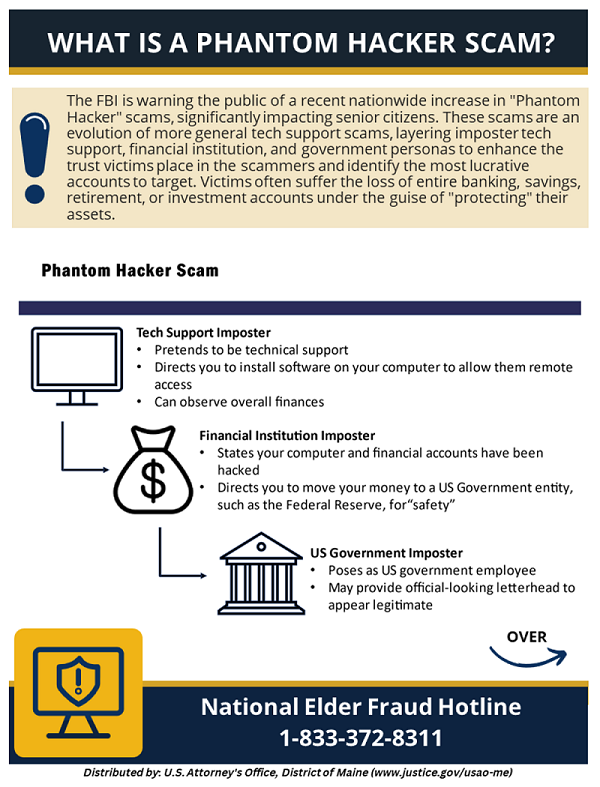FBI Warns to Avoid Costly Phantom Hacker Attack
May 3, 2025
Cyber creeps are on the move again with a financial hack no one is immune from. Even the FBI is warning the public about “Phantom Hacker” attacks they say are growing fast and cleaning out funds from unsuspecting victims. It’s a slick and quick attack, and before you know it, your hard-earned cash is gone in a flash. Here’s what you need to know about this scam, and fast.
The Phantom Hacker Plot
This scam is a financial phishing phone call. Scammers call targets and impersonate their banking official. They warn that hackers have infiltrated your account, and your funds have to be moved fast in order to be saved. And oh, you’ll need to download an app to facilitate the transfer quickly. Of course, there’s a catch. Doing so gives the scammer remote access to your device. Once the wire transfer to “safety” is done, it’s in the hacker’s account and your funds are now theirs.
Top Tip: Once you authorize a wire transfer it may not get reimbursed, so be absolutely sure you want to send it. If you give permission for a transfer, it’s considered “on purpose” and not necessarily subject to reimbursement.

The FBI reports there are variations on this phantom theme, but they all use the same concept. They relay shocking financial news, rush urgency giving you no time to think, and setup a wire transfer into a hacker-controlled account. They also report downloading an app may or may not be involved. Truth is, your account was never breached by a hacker and your funds are as good as gone.
Fighting the Phantom
Here’s how you can help stop a Phantom Hacker attack before it starts.
- If a banking rep calls about anything to do with your account, hang up. Then use a trusted phone number or email to contact your financial institution and verify if the caller was legitimate.
- Financial institutions, credit card companies, government agencies or utilities will never make an unsolicited call and ask you to transfer money or make changes to your account.
- Never move money on the advice of someone who calls you, no matter whom they say they are.
- Never download an app when someone requests it on an incoming call, even if the caller claims to be a financial institution rep or tech support.
- Never provide your login and other sensitive credentials to anyone who calls you.
Today, with the help of AI and other tricks, scammers are always improving their methods. So, remember, no one is too smart to fall for an online scam.